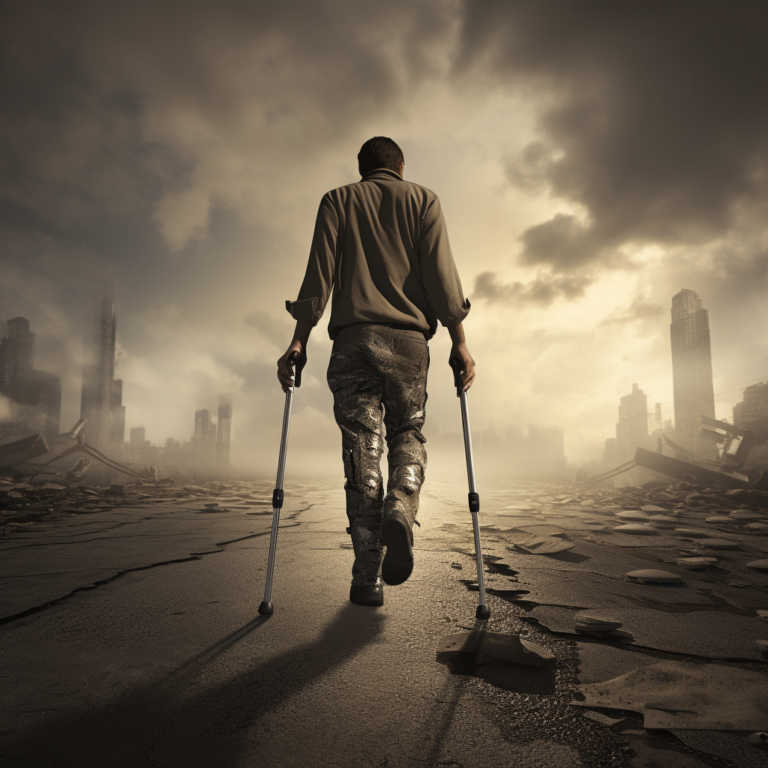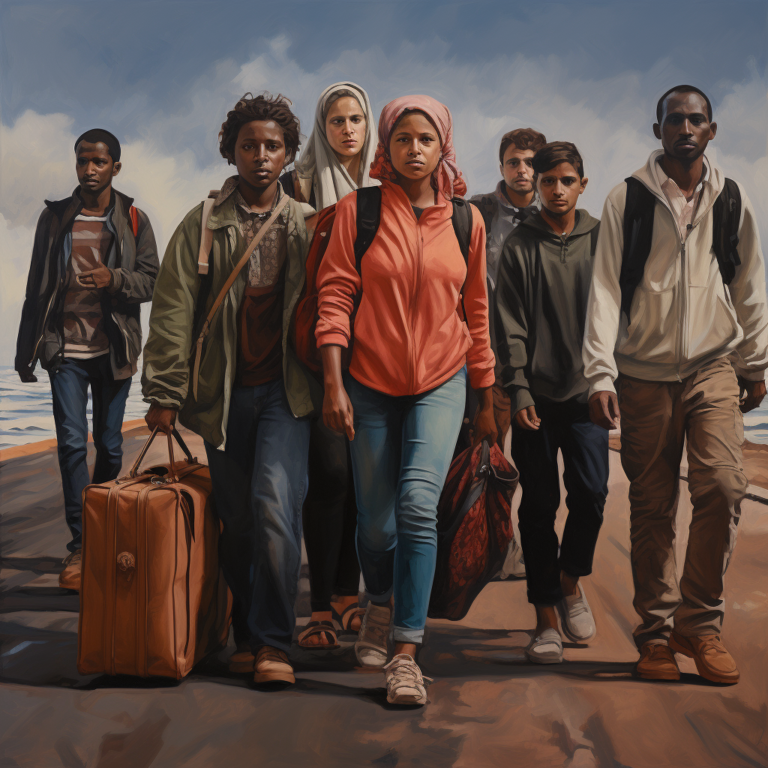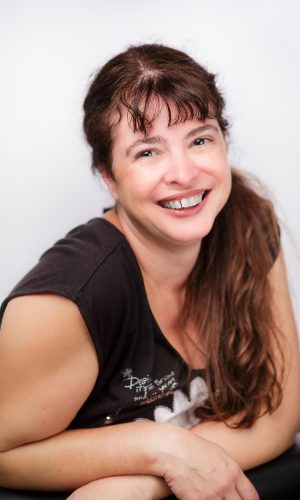The Concept of Separation
The end of life issue and the way we take care of elders are recurring problems in France and in many other countries. Indeed, we live in societies that glorify youth and sweep old people under the carpet, third-class citizens who have become useless. Old age and the resulting death terrify us so much that we freeze at the very idea of talking about it, in case thinking of it might instantly conjure it upon us… In such a context , what are the chances of our life encountering a happy ending ?
A few years ago, my grandmother spent her last living years in a nursing home and, upon her arrival, my mother noticed numerous proven negligence: lack of staff, poorly motivated staff due to lack of time and remuneration, repeated hygiene problems, residents who could not move were abandoned in their rooms for a whole day… My mother met the Director of the establishment several times to complain, wrote to him, but nothing ever changed. At the same period, numerous scandals broke out around abuses in these end-of-life homes – people placed there do not survive more than 2 years according to french national statistics – whether public or private, including the one denounced in the edifying book “Les Fossoyeurs” by french journalist Victor Castanet.
A few days ago, my husband met a friend whom he had lost sight of for several years and he told him that, for a decade, he had been selling to nursing homes wellness equipments and services for their residents. He ended up throwing in the towel, tired of only receiving negative responses due to profits account lines, with no consideration for the comfort of the people concerned. Disgusted by the lack of attention paid to these human beings from whom emanated those profits, he decided to create a non-profit organization which helps elderly people to stay in their home, offering them solutions and adapted support which generally do not cost more than a nursing home on a monthly basis.
However, the real underlying societal problem literally jumped at me when I read an interview with french actress Sandrine Bonnaire who denounced the terrible conditions in which her mother died in her nursing home: “We abandon our elders, we don’t respect them,” she vigorously protested. Reading this sentence, I understood that as long as we kept going with this outside of us vision of old age, nothing would change. Indeed, as long as we consider old age as an external concept – “our elders” – it will never cease to be a problem. Who on earth would be interested in the fate of a complete stranger? For heaven’s sake, elders are not a separate species! Instead of worrying about how we treat “our elders” – our seniors for the politically correct ones who have renamed them as if old age were an insult, while continuing to let them die of undignified deaths – we should be worrying about how WE will be taken care of when WE reach the age of dependency if we ever reach it. After all, what are we all if not old people on their way?
In the same way, when we hear children playing and making noise outside our house while we could really use a little peace and quiet after a tiring day, instead of cursing at them and at their parents who should rather be attending them than leaving them mischieving on the streets, let’s make an effort of memory to remember what games we liked playing when we were their age and the feeling of freedom that running and screaming gave us. On days of frustration, why not try to shout like a child to release the excess energy or sing at the top of our lungs until we lose our voice – not too long though so as not to blow our neighbors’ eardrums or destabilize the climate -, this will reconnect us to this child who still lives inside of us and who certainly bears much wisdom than the adult we have become.
Our societies are built on a separation mode: children, teenagers, youngsters, adults, elders but also straight people, gay people, disabled people, white people, black people, Asian people, animals, minerals , plants… We all live side by side, but certainly not together, and we can legitimately ask ourselves whether we really all live on the same planet: Do we really consider ourselves as human beings living in the heart of the animal kingdom kindly hosted by a generous and truly non-resentful nature?
If we follow Quantum Physics theories and discoveries, we all live within a quantum field which connects us all to one another: where we see air and emptyness, there is in fact a unified field of atoms and molecules in which we move, all in contact with one another, like a great invisible blanket that would envelop us all. Separation on the quantum level does not exist, it is just an illusion projected through our limited senses which are not able to perceive this microscopic universe.
But our societies, for more than a century, have isolated us to the extreme: “divide and conquer” probably being the favorite motto of our political and religious leaders throughout ages. This phenomenon of individualization accelerated with the concentration of populations in large cities due to the development of global industry and, later, with the arrival of screens in our lives. The pandemic which should have united us, supportive with one another in the face of danger and misfortune, has finally divided us a little more around the vaccination issue. As long as only profit and the concept of “never enough” reign over our lives, our nursing homes, our hospital system and our entire social system will continue to disintegrate. So do we have enough love and compassion left in ourselves as individuals to change things?
Often, when we love someone, we treat them the way we would want to be treated by the person who loves us. So, wouldn’t it be wise to look at caring for the sick or for the elderly in the same way? That each person in charge of a nursing home or who works there does so as if they were the ones being treated and cared for there? Because this may be the case one day and it will then be too late to have regrets… I know that working conditions there are often very arsh due to lack of financial means, but aren’t we here, in this life, to give the best version of ourselves whatever the circumstances, especially in personal care jobs?
The same goes for legislators or rulers; I have bad news for them: one day, they will become old too! So, okay, they think they will have enough money to go to a private clinic or a luxury retirement home, but are they really sure of it? And, if so, will this also be the case for their brothers and sisters, their friends, their children and grandchildren?…
In our societies of rampant consumption where everything is disposable, replaceable, we always work harder to consume more and more, without ever questioning the moment when we just have enough, when more becomes too much, overwhelming, harmful for us and our environment. In this frantic financial race, despite progress, or perhaps because of it, human beings have also become disposable, replaceable products for multinationals and their addicted to profits shareholders. By continuing to consume ever more, we make ourselves willing accomplices of a system in which we have become the slaves responsible for their own constraints.
When was the last time we looked at our good old planet with love and awe for all its beauty and wisdom, as we would look with kindness at our grandmother who, year after year, lovingly welcomed us for the holidays? If we push the analogy further on our general behavior, if our planet were our grandmother, we would currently be holding her hostage tied to a chair and be torturing her until she tells us where her last savings are hidden before sending her to die in a nursing home!

The Civilization
What are the criteria to know if we are still civilized people? If not, what can we do better?

The Other One
Why do we fear so much other human beings just because they are different from us?

Endorsing full responsability
Why do we fear so much to do things the wrong way? And what would really happen if we did?

You need guidance ?
I am here for you.